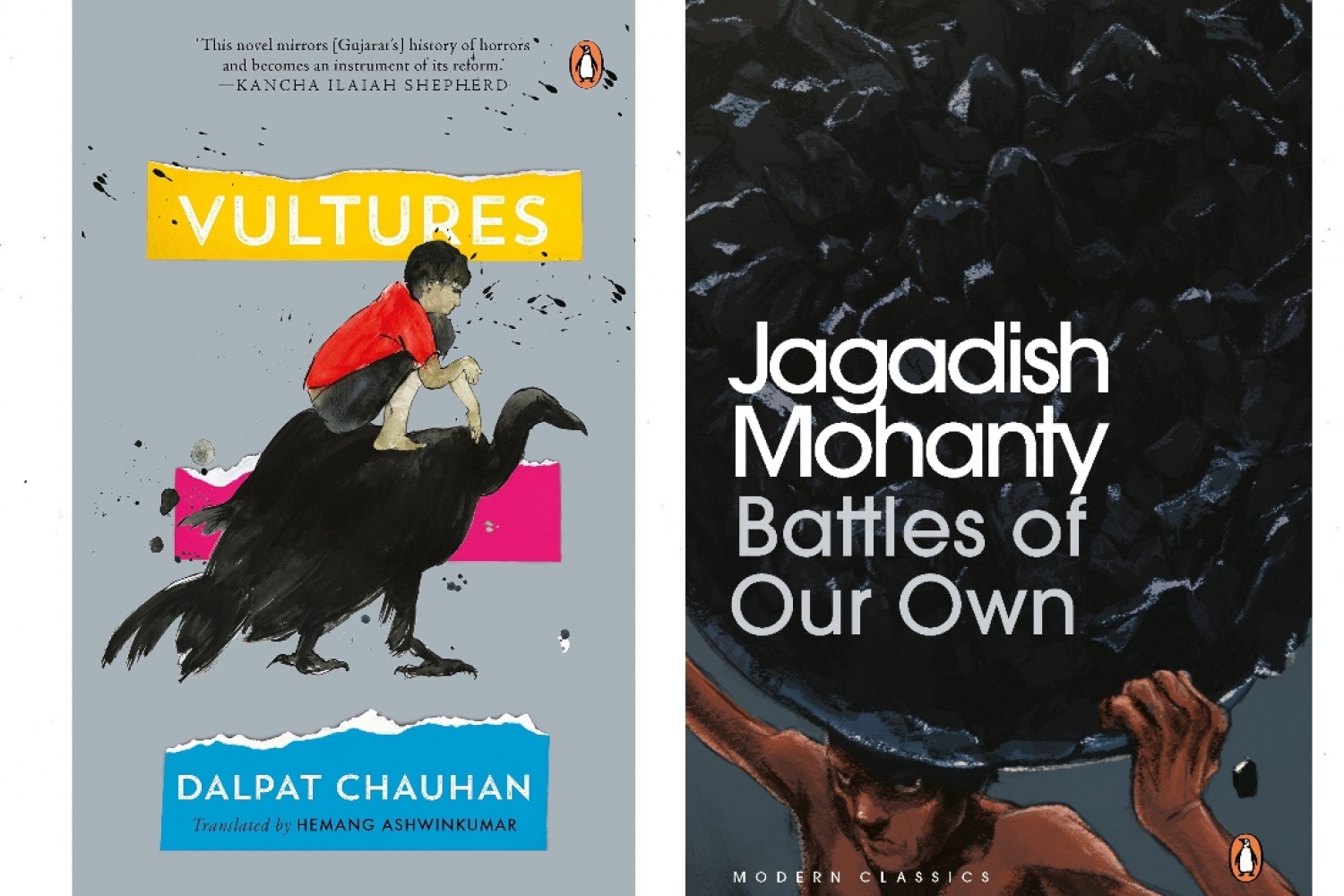

As the International Booker Prize shortlist was revealed a few days ago, history was also made since, for the very first time in the award’s history, the translation of a Hindi language book is in the running for the win. With Geetanjali Shree’s novel Tomb of Sand, translated from the Hindi by Daisy Rockwell, on the shortlist, it has invariably lent attention to other brilliant translations of books written in Indian regional languages, that are being published in our country. We present a Platform edit of such books releasing this month.
Battles of Our Own
Battles of Our Own (Nija Nija Panipatha) by Jagadish Mohanty (1951-2013), was published in 1990. It is set in the coal mining area of western Odisha, where the author worked all his life. The conflict between the coal mine administration and the trade union in an industrial setting gives the novel its plot, characters and atmosphere. The conflict-ridden world of a colliery makes it an exemplar of the 'industrial novel' in Odia and perhaps in Indian literature. The setting of the novel makes it unique, setting it apart from the majority of mainstream Odia novels of the time, with their polite and placid settings and their themes of romance or social success. It has been translated into English by Himansu S. Mohapatra and Paul St-Pierre.
Vultures
Dalpat Chauhan is a veteran Gujarati Dalit writer and Vultures is based on the blood-curdling murder of a Dalit boy by Rajput landlords in Kodaram village in 1964. It portrays a feudal society structured around caste-based relations and social segregation, in which Dalit lives and livelihoods are torn to pieces by upper-caste vultures. The deft use of dialect, graphic descriptions and translator Hemang Ashwinkumar's lucid telling throw sharp focus on the fragmented world of a mofussil village in Gujarat, much of which remains unchanged even today.
Hungry Humans
This translation of the groundbreaking Tamil novel Pasitha Manidam, first published in 1978, offers deep insight into the conservative and caste-conscious temple town of Kumbakonam, viewed here with dispassionately cold clarity as a society that utterly fails its own. Sudha G. Tilak deftly builds upon Karichan Kunju's prose to expose this world, raw, real, without frills or artifice. The themes of masculinity, desire and sexuality, caged within caste and repression, all combine to give readers front-row seats to the many acts we put on for and as a community.
Nireeswaran
Is it possible for society to exist without religion? Nireeswaran, the most celebrated of Malayalam novelist V.J. James' works, uses incisive humour and satire to question blind faith and give an insight into what true spirituality is. Three atheists, Antony, Sahir, and Bhaskaran, embark on an elaborate prank to establish that God is nothing but a superstition. They instal a mutilated idol of Nireeswaran, literally anti-god, to show people how hollow their religion is. Their plan starts turning awry when miracles start being attributed to Nireeswaran. The trio is put in a quandary. Will they fight their own creation? Is their intractable minds an indication that atheism is a religion in itself? Belief and disbelief, it is possible, are two sides of the same coin. The book has been translated by Ministhy S.
Dream Factory
Set in Kollywood, or the Tamil film industry, in the 1980s, Dream Factory is a fictional chronicle of the shenanigans and the rising and falling fortunes of various players in show business. Based on bestselling writer Sujatha's first-hand observations, Dream Factory is a page-turner filled with memorable characters and incidents that ring true, providing readers a no-holds-barred look into one of the world's most prolific film industries. The book has been translated by Madhavan Narayanan.
Text Nidhi Verma
Date 11-04-2022